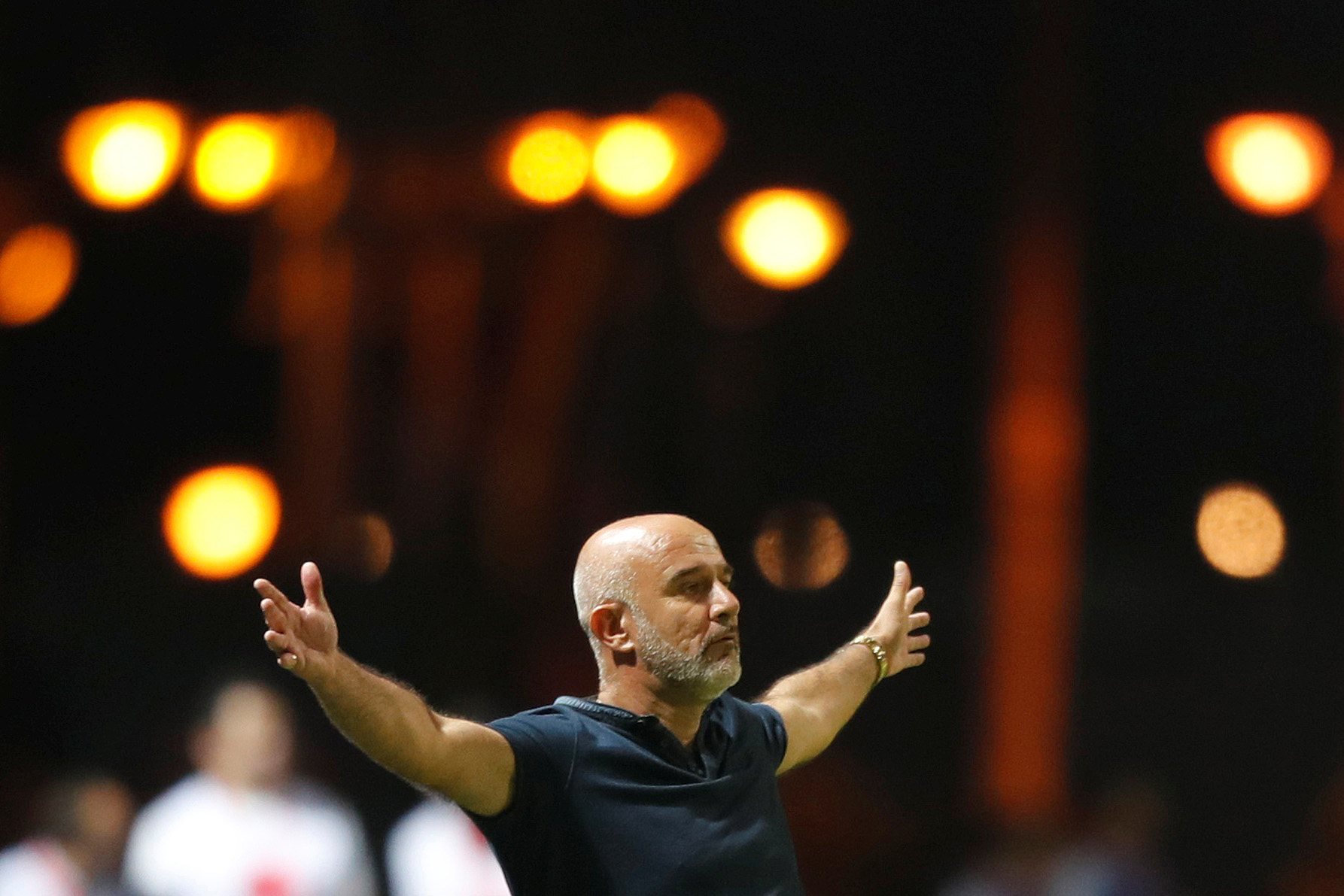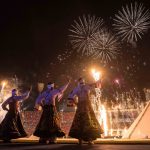The making of 2019 Afcon’s fairytale story
Mocked as fishermen because of their amateur football league, Madagascar swam with the sharks and devoured a few to reach the quarterfinals in an emotional ride that won hearts all over the contine…
Author:
13 July 2019

Nicolas Dupuis’ loud laugh is a shock to the system of the quiet JW Marriott Hotel lobby, but for the first time in our conversation I understand him. I join in with a genuine laugh this time around, not like the strained ones that came before because of the language barrier.
The serious businessmen in our vicinity shoot menacing stares at us before continuing their hushed conversations. The Frenchman pays them no mind. He is higher than cloud nine and nothing can burst the bubble he is in, not even coming up against Tunisia, ranked second in the continent two days after his interview with New Frame. That’s because Madagascar shouldn’t be here, wearing the badge of being one of the eight best African teams with their fairytale run to reach the quarterfinals in their maiden appearance in the Africa Cup of Nations (Afcon).
Dupuis’ laugh comes from the question of how he would have reacted if someone had told him before the tournament that Madagascar would reach the last eight. He responds in French, as with every other question I ask, forcing me to put on my best performance to look like I understand what he is saying.
I smile, nod and laugh when he does. My laughter is delayed, a lot like a child watching a sitcom in a language they don’t understand but still joining in when the audience laughs so as to look like they also get the joke. Getting him to sit down and talk about Madagascar’s fairytale run was the hard part, the translation was going to be easy with the team’s media officer Mirado Rakotoharimalala promising to do so. In the end, my media colleague Maher Mezahi ended up pulling through.
Mind your language
But before Mezahi stepped in, I had to bring my A-game in acting like I understood the Frenchman so as to make it a conversation and not an interview. I fed off the few words I understood for the flow of the conversation. So when he laughed at the question of reaching the last eight, our laughs were in synch because even saying it sounded bizarre. Madagascar are ranked 108th in the world, and they had Nigeria, Guinea and Burundi in their group. As if that wasn’t tough enough, they had to get past the Democratic Republic of Congo, led by the experienced Florent Ibenge, in the last 16.
“It was not an objective of mine to reach the last eight of this tournament,” Dupuis said. “My only aspiration was to make Madagascans proud. I hoped to make the round of 16, and that seemed like a crazy thought at the time. There was Burundi – and no disrespect to them – but the fight to finish third [and go through as one of the four best third-placed finishers] was going to between them and us, I thought. In the end, we finished first in our group. So, yes, we did not expect to make it to the quarterfinals.”
Related article:
But they did, playing with a lot of heart to knock the Super Eagles out of the sky. “We took Madagascar for granted because we had already qualified for the next round,” Nigeria’s forward Odion Ighalo explained.
Being underestimated worked well for Madagascar. Even their nickname doesn’t send fear into the opposition as do the Indomitable Lions, Super Eagles and the Leopards. Barea, a species of Zebu cattle, is a domestic animal that has no place feasting at the top table of the African jungle that is the Afcon. This Barea disregarded the food chain. They brought the Super Eagles back to earth, humbled the Leopards of DRC and feasted on the Swallows of Burundi. But it’s their point, in their first game, against the National Elephants of Guinea that resulted in pandemonium on the streets of Madagascar.
“It’s a dream come true to be doing what we have done,” Dupuis said. “We have collected our first points, first victory against Nigeria and a qualification to the quarterfinals. For Madagascar it’s exceptional. I’m experiencing all of this with some distance because we don’t know how special what we’re doing is at the moment. We will only come to a full realisation after the tournament. That’s because we’re doing a lot of day-to-day work, we’ve just finished our 41st training session and our eighth or ninth video session [on the morning of Monday 8 July]. We aren’t stopping. We only got a sense of what was happening when people sent us photos and videos of the celebrations in Tana [Antananarivo] and Mada [Madagascar]. It’s a pleasure.”
The quiet Madagascar gets loud
Rakotoharimalala was in Madagascar’s capital when Barea got their first point in the Afcon.
“It was just amazing,” he said, his face lighting up. “Generally Malagasy people are quiet, we don’t show our emotions that much. But when we got the first point against Guinea in our first game, it was amazing. I was in Tana, I watched the game with my friends at a sport pub. The feeling and ambience was indescribable. We were really happy, and really proud because we used to lose games by big margins and struggle to qualify. So, our first point at the Afcon was just amazing.”
Those wild celebrations worried Dupuis. “When we won our first point against Guinea, it was a huge party. It was madness in Madagascar,” he said. “This was Madagascar’s first points at a Cup of Nations! I think we could have stopped then and people would have been happy, and I was scared to tell the players that yes, we did well against Guinea but we cannot stop here.
Related article:
“So the next morning, I called a meeting with my players and I told them, ‘Guys, it would be a shame to stop here. We can reach the last 16 as one of the four best third-placed teams’. We had that match against Burundi, where we were not great. We did what was necessary to qualify to the round of 16 … and you know appetite comes with eating. Our results got better and better and so did our performances. We finish first in the group stage to face DR Congo in the last 16. We beat the 49th [DRC] and 45th [Nigeria] best teams in the Fifa rankings … maybe we’re unstoppable.”
It turned out they were stoppable. Tunisia ended the fairytale with a crushing 3-0 defeat at Al Salam Stadium on Thursday 11 July. Chants of “Merci Barea” consoled the disappointed players who took in the love they were showered with at full time. Those fans included the hundreds who were in a chartered flight organised by Madagascar’s president, Andry Rajoelina.
Travelling for two days to watch Barea
Andriamanantena Manantenasoa was part of that group of fans, but she and 12 of her family members made the long trek on their own with their own money. They travelled for two days, landing in Egypt on Thursday after a lay-over in Kenya. She had so much faith in Barea that she even bought the tickets for the semifinal on Sunday 14 July. Instead of Barea, however, Tunisia will take on Senegal at 30 June Stadium while Nigeria faces Algeria at Cairo International Stadium in the second semifinal. The party won’t stop though for the Manantenasoa household and Madagascar.
“I am very proud of Barea. They say that we are little, but now we are bigger than ever. I only started following football when Barea, became Barea,” she says before laughing. “I am not a football fan. I am not here to watch football. I am here to watch Barea play football and make the country proud.”
Related article:
The celebrations in Madagascar started on 16 October when Barea became the first team to qualify for the 2019 Afcon, ahead of Senegal who were in their group. Their qualification, point against Guinea, win over Nigeria, topping their group and reaching the quarterfinals are all memorable moments because the country doesn’t have a professional league. The current structure is amateur, which is why only two players in their 23-man squad are based in Madagascar – Romarrio Baggio (Fosa Juniors) and Jean Dieu-Donné Randrianasolo (CNaPS Sport). They are both benchwarmers in a squad littered with players who ply their trade in the lower leagues of Europe.
The making of Madagascar’s fairytale run
“There are very few players who play locally,” Dupuis said. “The local players play the Chan (African Nations Championship) or the Jeu des Iles (Indian Ocean Island Games). How did I build this team? I relied a lot on one player, Faneva [Imà Andriatsima, captain of the team]. He plays in Ligue 2 [for Clermont] in France. Every day we would speak on the telephone and search for players who might have Madagascan ancestors. He sometimes crosses paths with them in Ligue 2 and he asks them if they would be interested, gets their contact and then I would go and see them. That’s how it happens.
Dupuis continues, “One player, then turns into two, three, four, five and six. They became the coach’s salesman and helped me construct this team. I also opened the door for players who, at one point, had refused to play for the national team. For example, Anicet Abel and Ibrahim [Amada]. They saw that things were not professional in terms of accommodation, kits and the coaching staff. So they refused to play because they felt that it was all for nothing. They lost all the time and in poor conditions. When they saw this new team with lots of Ligue 2 players, they knew we had a good team now.”
Related article:
Dupuis knows the French lower leagues very well. Not only is he the coach of Madagascar but he also manages Fleury 91 who play in the fourth tier of French football. As a player and as a coach, Dupuis has loitered in the lower leagues of his native country. His success with Madagascar is his first real moment under the sun, it’s more meaningful than an upset against a Ligue 1 team in the French Cup.
“Why Fleury? Because the wife of the President of Fleury [Pascal Bovis] is Madagascan. It’s a very big semi-professional club in France, perhaps the biggest. There aren’t a lot of clubs that could attract me. They have a lot of means and a lot of ambition and potential. They’re much bigger than the semi-professional level and they will soon be professional with no problems. There are only professional players playing for Fleury. The other reason for me to coach Fleury is that we are managed by a normalisation committee in Madagascar, which has neither the power nor the ambition [maybe] to pay me like a normal coach. So I cannot live with what I receive from the normalisation committee. I’m impatiently waiting for the federation elections which will happen on the 24th of August.”
Dupuis’ contract with Madagascar was supposed to come to an end after the Afcon, but the small island has captured the Frenchman’s heart.
“It’s a huge source of pride for me to know that I’m the coach who helped, hold on … it’s the players that play, and we have to recognise that. But it’s a great source of pride for me to be the coach that helped Madagascar qualify [for the Afcon], finish first in the group stages and finally to make it to the quarterfinals. It’s exceptional. I love the country, the people have really welcomed me. I feel very attached. I made an oral and verbal commitment to the President of the Republic to continue on for four more years, so I’ll do that.
“I am proud to be Madagascar’s head coach, a small country. It’s a country with a lot of poverty, and a lot of people are unhappy. But, at the moment, we are giving them a lot of happiness and that’s what’s most important for me. In addition to the sporting project, it’s also a human project for me.”




